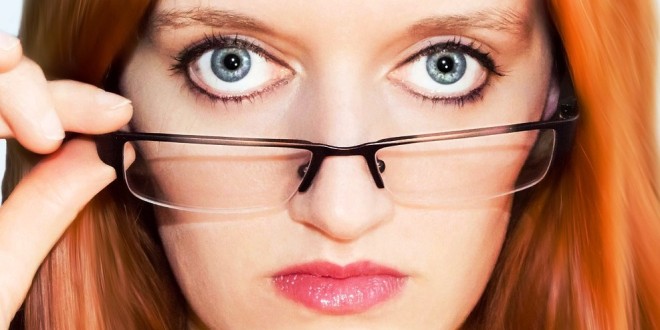
Many people think reading glasses make you look older. Now, that may not be earth-shattering news, but media personalities may want to take heed: A new study by JU researchers has found that famous TV news anchors are 60 percent more likely than average folks to be perceived as older when they don the specs.
While just over half of those surveyed in our research said “normal” people looked older when wearing readers, nearly nine out of 10 felt media reporters such as Matt Lauer, Anderson Cooper, George Stephanopoulos, Kathie Lee Gifford and Meredith Vieira did when they wore them.
Readers are a common remedy for presbyopia, an eye condition that often occurs around age 40 and causes blurred near vision. However, our survey, done in partnership with Alcon, the global leader in eye care and a division of Novartis, found that reading glasses can make us look older, intelligent and “nerdy.”
Researchers conducted 50 in-depth interviews on Generation X adults’ perceptions of aging, which included sharing pictures of people with and without readers and asking interviewees to guess their age and personal characteristics.
One group of pictures was of “normal” adults, and the other was of the well-known media reporters. That’s where the big age perception difference occurred.
The findings highlight the snap judgments that we can make about people, and it appears that we are more critical of people in the media. Although our study did not directly assess why media reporters were perceived to look older when wearing readers, it is likely because of our social comparison processes.
Overall, how much older do people look when wearing readers? The most common response in our survey was 3-5 years older. In addition, when the interviewees were asked, “Why do readers make people look older?” quotes included: “People who wear reading glasses look feeble,” “Reading glasses equals aging” and “It brings out wrinkles.”
These results are similar to study findings from New Zealand researchers who found that although glasses improved adults’ quality of life, wearing glasses had negative associations with aging. In other words, they make us look older than our actual age.
Presbyopia can cause difficulty seeing in dim light and blurriness when viewing small objects and fine print, such as when people try to focus on close objects such as smart phones, computers, books and menus. According to the latest Global Presbyopia-Correcting Surgery Market Report, readers are the most common correction for the nearly 116 million American adults who have presbyopia.
Unfortunately, you can’t escape the affliction, even if you’ve never had a vision problem before. There is no way to avoid or delay it because it is a natural part of the aging process.
No mystical fountain of youth has yet to be discovered, but removing reading glasses and replacing them with multifocal contact lenses is a simple option to help people look their age while correcting presbyopia.
So the answer to the question, “Do readers make us look older?” is a qualified “Yes.” In fact, some people may even say wearing contacts might get you called “Miss” and readers might get you called “Ma’am.”
— Dr. Heather Hausenblas
Disclosure: I have received compensation for my partnership with Alcon, but all opinions expressed here are my own.
Fitness and healthy aging expert Dr. Heather Hausenblas is an associate professor of Kinesiology in the Brooks Rehabilitation College of Healthcare Sciences at Jacksonville University
 Wave Magazine Online Jacksonville University News Hub
Wave Magazine Online Jacksonville University News Hub
